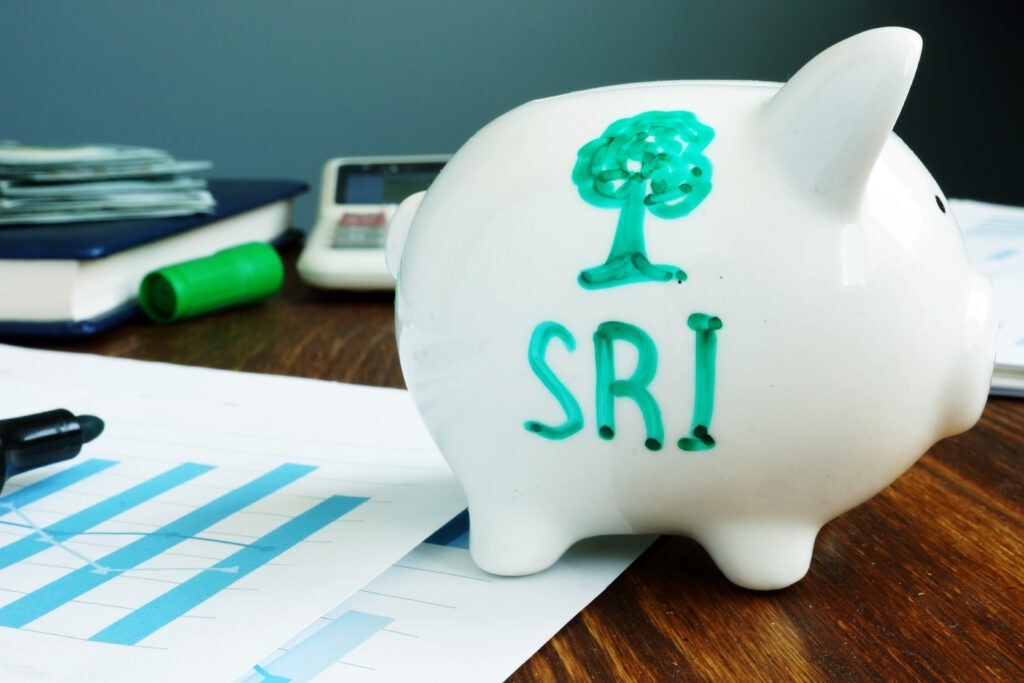In our recent CT Wealth Talk: What You Need to Know About the Future, a common theme throughout futurist Jamie Metzl’s keynote was the importance of ensuring that our values guide the development of technology, healthcare, and other advancements. But what exactly are values?
Values are our own set of personal beliefs; they help us to determine the things that are most important in our lives and how to know wrong from right. While values can be passed on from generation to generation, they can also develop over time because of our own experiences.
What if you could align your values with your investment portfolio to make a real-world impact?

Socially Responsible Investing
Socially responsible investing (SRI) is a strategy that aligns your investment decisions with the environmental, social and governance (ESG) issues and data points that you value the most. SRI portfolios are not limited to just protecting the environment and can be designed to address issues such as racial equality, diversity in workplace leadership, the treatment and safety or employees, gun control, and so much more.
Over the recent years, SRI has been gaining traction as investors look to be more engaged and thoughtful with their investment decisions. Additionally, companies continue to disclose more information that allows investors to measure and evaluate the impact their investments have.
“We’ve seen increasing demand from our clients in wanting to learn more about SRI and how they can align their personal values with their investment strategy,” said Megan Trask, Partner at Connecticut Wealth Management (CTWM).
While many investors turn to SRI to make an impact, most are not willing to sacrifice returns. There is a case to be made that companies who incorporate ESG into their decisions, will produce a more sustainable business model and spend less on liabilities such as lawsuits or pollution related fines, which could lead to increased profits over time.
Challenges of SRI
One of the challenges in this space is the potential for “greenwashing,” which refers to a fund manager that claims to have a socially responsible mandate for marketing purposes but is not following through when it comes to implementation.
“The importance of having a trusted financial advisor when building an SRI portfolio cannot be understated. It is our responsibility to thoroughly vet any fund managers to ensure the mandate and track record aligns with each client’s individual goals,” said Trask.
Trask also advised that the performance of SRI portfolios can differ from benchmarks, mainly because many funds eliminate exposure to specific industries, such as fossil fuel or tobacco companies. With SRI, it is just as important to determine the companies you do not want to invest in as it is to determine the ones you do.
As with any portfolio, diversification is key, and an advisor can help to ensure that your portfolio not only accurately reflects your values, but also helps to reduce your level of risk with a more diversified portfolio.
How to Get Started
The first step toward building an SRI portfolio is to take the time to reflect on your personal values, which is where a financial advisor can help.
“Your values can evolve with things like regulatory changes, technological advancements and geopolitical events,” said Trask. “It’s important to remember that your SRI portfolio will likely change based on how your values align with what is going on in the world, as well as how you grow personally.”
If you are looking for help identifying how your values can be applied into your investment decisions, please feel free to complete our brief survey powered by YourStake*: https://www.yourstake.org/questionnaire/intro/ctwm/.
If you are interested in learning more about socially responsible investing and how to incorporate your unique values into a strategy, please contact our team of financial advisors at 860-470-0290 or by filling out the contact form.
*CTWM’s Investment Committee invested in the YourStake tool to help analyze the performance of SRI portfolios against more traditional benchmarks, as well as to measure the real-world impact of shareholder engagement.
